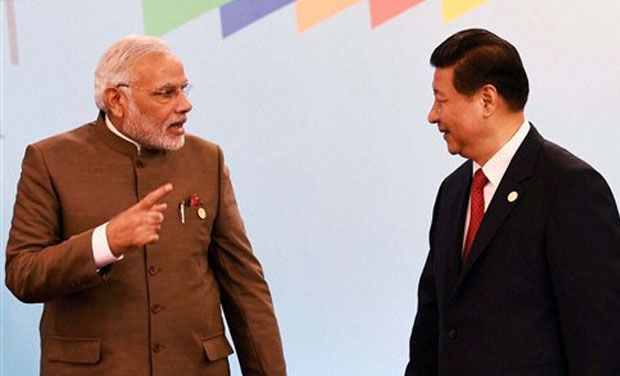Xi visit: Extraordinary Expectations
Narendra Modi and Xi Jingping

CHENNAI: The very first day of Chinese President Xi Jinping’s three-day visit to India has set off unprecedented waves of expectations that are bound to stir more than customary interest across world capitals, especially Washington and Tokyo.
The upbeat mood of the meetings between President Xi and Prime Minister Narendra Modi has raised hopes of the relationship being rescued from the trap of the routine into which it had fallen.
After the tense stand-off over the Ladakh incursions in May 2013 last year, both Beijing and New Delhi were content to merely manage the relationship with expectations limited to keeping it on track. In the event there were no triggers to liven up the ties, inject new enthusiasm or explore possibilities of taking it to the next level. The relationship was marked by an inertia which could not be shaken off even after Xi and Modi struck a rapport on the sidelines of the BRICS summit.
Given this background and the orchestrated but futile attempts by sections of media to keep the spotlight on “border skirmishes”, the Xi-Modi meetings have been a hit if the optics and atmospherics are anything to go by.
Modi and Xi have started off by giving the relationship a political boost, for the lack of which it was languishing in routine “management mode”. Given the political charge, the atmosphere is loaded with expectations of the relationship going beyond cooperation in trade, infrastructure and manufacturing. This is one clear possibility held out after the first day’s much publicised outings of the two leaders.
With their political heft, both Modi and Xi can bend public opinion in their respective countries to take the relationship to the level where the border dispute can be talked about without fear of reviving suspicions and scepticism, as it has tended to do in the past. Modi indicated his willingness to broach the border dispute nearly 10 days before the visit during his interactions with a Chinese media delegation. Xi, too, has made it plain that he would not fight shy of tackling the issue.
The hosting of a public reception – the first in over 60 years – for a visiting Chinese leader shows that Modi is confident of his agenda in India-China relations moving forward. Implied in this is the message – from both leaders – that sections, including in the bureaucracy and military establishment, opposed to the political steps necessary for bringing new dimensions to the relations would no longer be allowed to play spoilsport.
The second message is that the spirit underlying the launch of the BRICS Bank – of India and China working together as partners on the world stage – would continue and brook no resistance.
The third message, though somewhat muted, is that now may be the opportune time to prepare for the political leap beyond trade, infrastructure and manufacturing to have a shot at the border dispute; for without resolving that, the India-China relationship can never realise its full potential.
Last, but not the least, is the message that expectations of India’s foreign policy continuing to go the Washington way may turn out to be misplaced.



